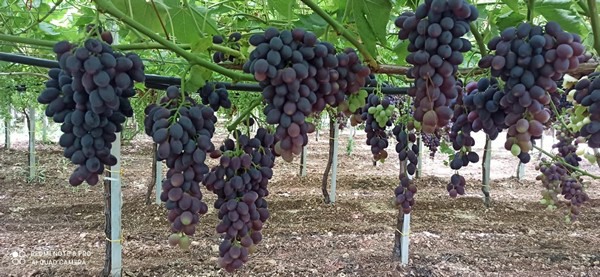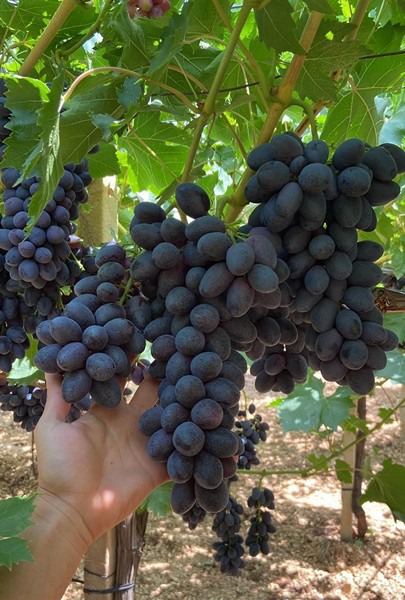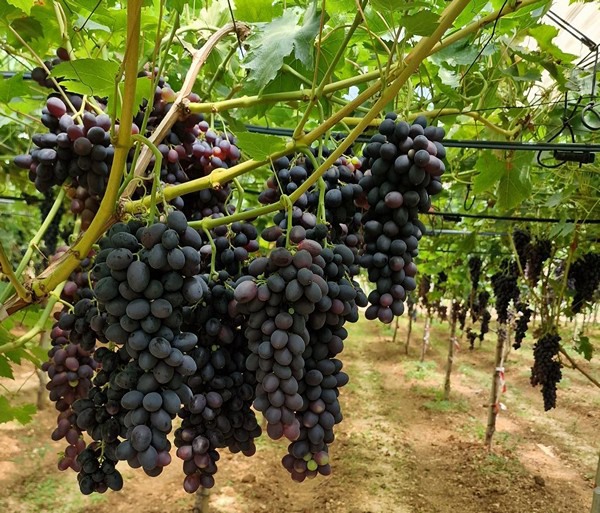During the early 2000s, considerable technical-commercial and climate changes occurred in table grape cultivation due to two new variables: a wider varietal offer and increasingly evident climate change.
The possibility of finding a position on the market with a wide product offer must combine with an effort to adapt to new production techniques and crop needs.
Climate change has an even greater impact, as the unforeseeable alternation of rain, hot weather and humidity have put traditional management techniques under pressure leading to the need for efficient protections such as plastic films, especially when it comes to early varieties.
Centro di viticoltura ed Enologia in Turi has been experimenting with a few plastic film formulations supplied by Retilplast Srl. FreshPlaza has talked about it with researcher Antonio Coletta.
 Maula grapes
Maula grapes
"We have tested two types of Retiplast films boasting different characteristics. The objective was to assess the ability to alleviate seasonal temperature changes while enabling the identification of the best precocity potential of some genetic introductions. The Maula vineyard set up as part of the Crea-Consorzio Nu.Va.U.T agreement at Ermes in Noicattaro was equipped in early March with two different films (PolyFilm-Yellow and PolyFilm-Plus) produced by Retilplast srl, with the ambitious objective of identifying the cultivar as super-early."
 It's a well-known fact how the most problematic moment for crops is between March and May, when the weather is more unstable leading to possible thermal stress that can damage blossoming and therefore production per hectare. "Over the past three months, we have seen how a technologically-advanced film must be capable of attenuating external weather conditions while managing the three zones where a plastic film needs to act: the UV area, the visible area and the near infrared area. The same balance needs to be reached in the radiation percentage transmitted and reflected."
It's a well-known fact how the most problematic moment for crops is between March and May, when the weather is more unstable leading to possible thermal stress that can damage blossoming and therefore production per hectare. "Over the past three months, we have seen how a technologically-advanced film must be capable of attenuating external weather conditions while managing the three zones where a plastic film needs to act: the UV area, the visible area and the near infrared area. The same balance needs to be reached in the radiation percentage transmitted and reflected."
One of the two films tested and produced by Retilplast that worked well was PolyFilm-Plus, which enabled to deal with the phase without damaging bunch elongation, color accumulation and sugar accumulation speed.
 Current state of the Maula vineyard covered with PolyFilm-Plus
Current state of the Maula vineyard covered with PolyFilm-Plus
"In more concrete terms, the examinations carried out on June 28th registered an average sugar level of 15° Brix and a uniform black color in part of the production (40% of bunches). Conditions were encouraging, meaning harvesting could start on July 5th, 2023."
For further information: Retilplast srl
Retilplast srl
Area Industriale, uscita A3
84022 Campagna (SA) - Italy
(+39) 0828 45359
info@retilplast.it
retilplast.it
